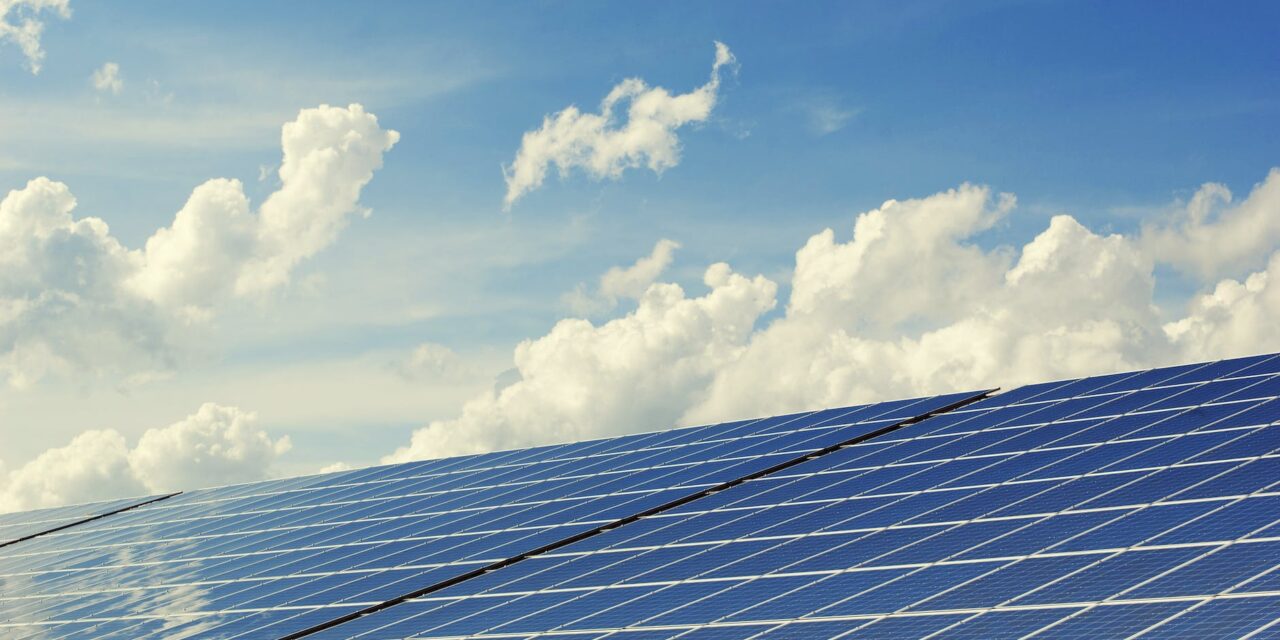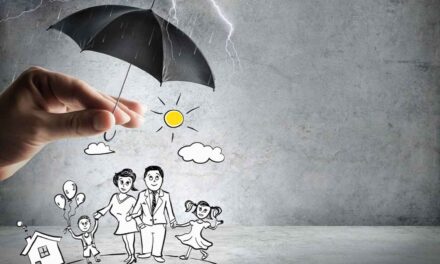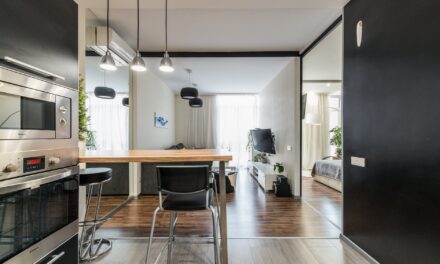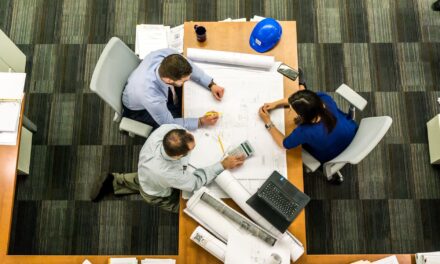Dubai has set its sights on becoming a global leader in renewable energy, with ambitious goals to generate 75% of its energy requirements from clean sources by 2050. This strategy is part of the Dubai Clean Energy Strategy, which aims to make Dubai a hub for clean energy and a global leader in the green economy. The strategy consists of five main pillars: infrastructure, legislation, funding, building capacities and skills, and having an environment-friendly energy mix.
To achieve its goals, Dubai is offering investment opportunities in solar and wind power projects. The government is committed to supporting green infrastructure and clean energy projects worldwide, and has invested in renewable energy ventures worth around 16.8 billion USD in 70 countries with a focus on developing nations. The UAE has also provided more than 400 million USD in aid and soft loans for clean energy projects, making it a leading international donor in this field.
Dubai’s commitment to renewable energy is not only driven by environmental concerns, but also by economic opportunities. With abundant sunshine and wind, the region is well-suited for solar and wind power projects. The government’s investment in renewable energy is expected to create jobs and attract foreign investment, while reducing the country’s reliance on fossil fuels.
Dubai’s Ambitious Goals
Dubai has set ambitious goals for renewable energy and is offering investment opportunities in solar and wind power projects. The Emirate is striving to become a global leader in clean energy, and its government has launched several initiatives to achieve this goal.
Dubai Clean Energy Strategy
In November 2015, Sheikh Mohammed bin Rashid Al Maktoum launched the Dubai Clean Energy Strategy. The strategy aims to produce 75% of Dubai’s energy requirements from clean sources by 2050. It consists of five main pillars: infrastructure, legislation, funding, building capacities and skills, and environment-friendly energy mix. The strategy is expected to reduce carbon emissions by 16% by 2021 and increase the share of clean energy to 7% of Dubai’s total energy mix by the same year.
Energy Strategy 2050
The UAE Energy Strategy 2050 was launched in 2017 and is the first unified energy strategy in the country based on supply and demand. The strategy aims to increase the contribution of clean energy to the total energy mix from 25% to 50% by 2050 and reduce the carbon footprint of power generation by 70%, thus saving AED 700 billion by 2050. The strategy is expected to create more than 75,000 jobs in the energy sector and attract over AED 600 billion in investments.
Net-Zero Emissions Target
In October 2021, the UAE announced its plan to achieve net-zero emissions by 2050, making it the first Middle East and North Africa (MENA) nation to do so. The plan includes a series of initiatives and policies to reduce carbon emissions across various sectors, including energy, transportation, and industry. The UAE aims to oversee AED 600 billion in investment in renewable energy as part of the plan.
Dubai’s ambitious goals for renewable energy demonstrate its commitment to sustainability and environmental protection. The Emirate is actively pursuing various initiatives to achieve its targets and is offering investment opportunities in the renewable energy sector. With the government’s support, Dubai is poised to become a global leader in clean energy.
Investment Opportunities
Dubai is positioning itself as a regional and global leader in renewable energy, particularly in solar and wind power projects. With the government’s support for green energy initiatives, investment in renewables has risen sharply in recent years. According to data provided by the EIC, capital expenditure on ongoing and planned renewables projects in the emirate worth some Dh50bn ($13.6bn) up to 2030.
Solar Power Projects
Dubai’s solar energy sector is rapidly expanding. The Mohammed bin Rashid Al Maktoum Solar Park, one of the largest solar parks in the world, is a key component of the Dubai Clean Energy Strategy 2050. The park aims to generate 5,000 MW of clean energy by 2030 and 15,000 MW by 2050, which will help to reduce carbon emissions by 6.5 million tonnes annually.
Investors can participate in solar power projects in Dubai through various channels. One of the most popular options is to partner with DEWA, the Dubai Electricity and Water Authority, which has attracted huge investments to the UAE from the private sector and foreign banks. DEWA has attracted investments around AED 40 billion from the private sector and international banks for the Dubai Clean Energy Strategy 2050.
Wind Power Projects
Dubai’s wind energy sector is also growing, with several wind power projects in the pipeline. The Dubai Electricity and Water Authority (DEWA) has launched several initiatives to encourage investment in wind power projects, including the Shuaa Energy 2 project, which aims to generate 1,000 MW of clean energy by 2030.
Investors interested in wind power projects in Dubai can explore various opportunities, including partnering with DEWA, which is responsible for the development of wind power projects in the emirate. DEWA is committed to increasing the share of renewable energy in Dubai’s energy mix and has set ambitious targets for the development of wind power projects.
In conclusion, Dubai offers a range of investment opportunities in solar and wind power projects. The government’s support for green energy initiatives, coupled with the emirate’s strategic location and favorable investment climate, make Dubai an attractive destination for investors looking to enter the renewable energy market.
Role of Renewable Energy in Economy
Impact on Economic Growth
Renewable energy has a significant impact on economic growth. By investing in renewable energy, countries can reduce their dependence on fossil fuels, which are finite resources and subject to price volatility. This, in turn, can lead to a more stable and predictable energy market, which is essential for economic growth. As Dubai aims to produce 75% of its energy requirements from clean sources by 2050, it is clear that renewable energy will play a crucial role in the emirate’s economic development.
Moreover, renewable energy projects can create new jobs and stimulate economic development. In Dubai, the renewable energy sector has attracted significant investments from the private sector and foreign banks, resulting in increased cash flows to the economy of Dubai and the UAE. DEWA has attracted investments around AED 40 billion from the private sector for renewable energy projects.
Public-Private Partnerships
Public-private partnerships (PPPs) are essential for the development of renewable energy projects. PPPs can provide the necessary funding, technical expertise, and risk-sharing mechanisms to make renewable energy projects financially viable. Dubai has been successful in attracting private sector investments for renewable energy projects, thanks to its favorable regulatory environment and clear targets for renewable energy generation.
PPPs can also help to transfer knowledge and technology from the private sector to the public sector, which can lead to the development of new industries and economic growth. In Dubai, PPPs have been instrumental in the development of renewable energy projects, such as the Mohammed bin Rashid Al Maktoum Solar Park, which is the largest single-site solar park in the world.
Overall, the role of renewable energy in the economy is becoming increasingly important, and Dubai is well-positioned to take advantage of this trend. By investing in renewable energy, Dubai can reduce its dependence on fossil fuels, create new jobs, and stimulate economic growth, while also contributing to the global effort to combat climate change.
Regulatory Landscape
Dubai has set ambitious goals for renewable energy and offers investment opportunities in solar and wind power projects. To achieve these goals, the regulatory landscape has been designed to encourage investment in renewable energy. This section looks at the regulatory landscape in Dubai for renewable energy.
UAE Energy Strategy 2050
The UAE Energy Strategy 2050 is a comprehensive plan to transform the energy sector in the UAE. The plan aims to increase the share of clean energy in the national energy mix to 50% by 2050, reduce the carbon footprint of power generation by 70%, and increase energy efficiency by 40%. The strategy also aims to increase the contribution of renewable energy in the total energy mix to 44% by 2050.
To achieve these goals, the UAE government has implemented several initiatives and policies, including the Dubai Clean Energy Strategy, which aims to produce 75% of its energy requirements from clean sources by 2050. The strategy consists of five main pillars: infrastructure, legislation, funding, building capacities and skills, and environment-friendly energy mix.
Paris Agreement Commitments
The UAE is a signatory to the Paris Agreement, which aims to limit global warming to well below 2 degrees Celsius above pre-industrial levels and to pursue efforts to limit the temperature increase to 1.5 degrees Celsius. As part of its commitment to the Paris Agreement, the UAE has set a target to reduce its greenhouse gas emissions by 23.5% by 2030.
To achieve this target, the UAE has implemented several policies and initiatives, including the UAE Energy Strategy 2050, which aims to increase the share of clean energy in the national energy mix. The UAE has also established the Abu Dhabi-based International Renewable Energy Agency (IRENA), which aims to promote the widespread adoption and sustainable use of renewable energy worldwide.
In conclusion, the UAE has set ambitious goals for renewable energy and has implemented several policies and initiatives to achieve these goals. The regulatory landscape in Dubai is designed to encourage investment in renewable energy, and the UAE Energy Strategy 2050 and Paris Agreement commitments are key drivers of this regulatory landscape.
Sustainability and Climate Action
Carbon Abatement Strategy
Dubai has set ambitious goals for reducing its carbon footprint and mitigating climate change. The Dubai Carbon Abatement Strategy aims to reduce carbon emissions by 16% by 2021 and 30% by 2030. The strategy includes a range of measures to promote energy efficiency, reduce waste, and increase the use of renewable energy sources.
Dubai is also investing heavily in renewable energy projects, particularly in solar and wind power. The Dubai Electricity and Water Authority (DEWA) has launched several initiatives to promote the use of renewable energy, including the Shams Dubai initiative, which encourages the installation of solar panels on rooftops. DEWA also plans to build the world’s largest solar park, with a capacity of 5,000MW by 2030.
Climate Change Mitigation
Dubai recognizes the urgent need to mitigate the effects of climate change and has taken several steps to address this issue. The Dubai Clean Energy Strategy aims to produce 75% of the city’s energy requirements from clean sources by 2050. The strategy consists of five main pillars: infrastructure, legislation, funding, building capacities and skills, and environment-friendly energy mix.
Dubai is also committed to reducing its carbon footprint and has set ambitious targets for reducing greenhouse gas emissions. The city aims to reduce its carbon emissions by 30% by 2030 and achieve net-zero emissions by 2050. To achieve these targets, Dubai is investing in renewable energy projects, promoting energy efficiency, and implementing measures to reduce waste.
Overall, Dubai’s sustainability and climate action efforts demonstrate the city’s commitment to addressing the urgent challenges of climate change. By implementing a range of measures to reduce its carbon footprint and promote renewable energy, Dubai is setting an example for other cities around the world to follow.
Renewable Energy Infrastructure
Dubai has set ambitious goals for renewable energy and is investing heavily in the infrastructure needed to achieve these goals. The city is focusing on solar and wind power, with significant investment opportunities available for those interested in these sectors.
Solar Energy Infrastructure
Dubai has made significant progress in developing its solar infrastructure, with the Dubai Electricity and Water Authority (DEWA) leading the way. The city has implemented the Mohammed bin Rashid Al Maktoum Solar Park, one of the world’s largest solar parks, with a planned capacity of 5,000 MW by 2030. The park currently has an installed capacity of 1,013 MW, making it the largest single-site solar park in the world.
The solar park uses both photovoltaic (PV) and concentrated solar power (CSP) technologies. The PV technology is used in the first three phases of the project, while CSP technology is used in the fourth phase. The park has also implemented a number of innovative technologies, such as the world’s tallest solar tower and the world’s largest thermal energy storage system.
Wind Energy Infrastructure
Dubai is also investing in wind energy infrastructure, with the Dubai Electricity and Water Authority (DEWA) leading the way in this sector as well. The city has implemented the first phase of the 800 MW Sheikh Mohammed bin Rashid Al Maktoum Solar Park, which includes 13 MW of wind power capacity.
The city is also exploring offshore wind power projects, with a planned 400 MW offshore wind farm in the works. The project is currently in the feasibility study stage, and if successful, it would be the first offshore wind farm in the Middle East.
Dubai’s investment in renewable energy infrastructure is a clear indication of the city’s commitment to achieving its ambitious goals for renewable energy. With significant investment opportunities available in solar and wind power projects, the city is well positioned to continue its progress in this sector.
Role in Energy Mix
Dubai has set ambitious goals for renewable energy, aiming to produce 75% of its energy requirements from clean sources by 2050. The UAE Energy Strategy 2050 aims to achieve an energy mix that combines renewable and clean energy sources to balance economic requirements and environmental goals. This section will discuss the role of renewable energy in Dubai’s energy mix.
Contribution to Energy Security
The UAE is one of the largest oil producers in the world, but it is also one of the most vulnerable to supply disruptions due to its dependence on oil exports. Renewable energy can play a significant role in enhancing energy security by diversifying the energy mix and reducing dependence on oil.
Dubai’s renewable energy projects, such as the Mohammed bin Rashid Al Maktoum Solar Park, have already contributed significantly to the energy mix. The solar park has a capacity of 5,000 MW, making it one of the largest solar parks in the world. The park has helped reduce Dubai’s carbon footprint and dependence on fossil fuels, enhancing energy security.
Diversification of Energy Sources
Renewable energy can also help diversify the energy mix, reducing the reliance on a single source of energy. This can help mitigate the risks associated with supply disruptions and price volatility.
Dubai’s renewable energy projects have diversified the energy mix by introducing solar and wind power. The Dubai Clean Energy Strategy aims to increase the contribution of clean energy to the total energy mix from 25% to 50% by 2050. This will help reduce the carbon footprint of power generation by 70%, thus saving AED700 billion by 2050.
In conclusion, renewable energy plays a critical role in Dubai’s energy mix by enhancing energy security and diversifying energy sources. Dubai’s ambitious renewable energy targets and investment opportunities in solar and wind power projects make it an attractive destination for investors looking to participate in the transition to a clean energy future.
Challenges and Solutions
Skills and Efficiency
One of the challenges facing the renewable energy sector is the lack of skilled workers. According to a report by the International Renewable Energy Agency (IRENA), there will be a need for 24 million jobs in the renewable energy sector by 2030. This means that there is a need for skilled workers to meet the growing demand for renewable energy.
To address this challenge, Dubai is investing in training programs to develop the skills of its workforce. For example, the Dubai Electricity and Water Authority (DEWA) has launched the ‘Green Skills’ initiative to train its employees in the latest renewable energy technologies and practices. DEWA is also partnering with universities to offer courses in renewable energy.
Another challenge facing the renewable energy sector is the need to increase efficiency. Renewable energy technologies such as solar and wind power are still relatively new and require further research and development to improve their efficiency. This is particularly important in Dubai, where high temperatures and dust can reduce the efficiency of solar panels.
To address this challenge, Dubai is investing in research and development to improve the efficiency of renewable energy technologies. For example, the Mohammed bin Rashid Al Maktoum Solar Park in Dubai is home to the world’s largest single-site solar park, which uses advanced technologies to improve the efficiency of solar panels.
Clean Coal and Nuclear Power
While renewable energy is an important part of Dubai’s energy mix, it is not the only solution. Clean coal and nuclear power are also being considered as part of Dubai’s energy strategy.
Clean coal technologies such as carbon capture and storage (CCS) can reduce the environmental impact of coal-fired power plants. Dubai is investing in CCS technologies to reduce the carbon footprint of its coal-fired power plants.
Nuclear power is also being considered as a source of clean energy in Dubai. The UAE’s first nuclear power plant, the Barakah Nuclear Energy Plant, began commercial operations in 2020. The plant is expected to provide up to 25% of the UAE’s electricity needs and reduce the country’s carbon footprint by 21 million tons per year.
In conclusion, Dubai is facing several challenges in its quest to achieve its renewable energy goals. However, the emirate is taking proactive steps to address these challenges by investing in training programs, research and development, and clean coal and nuclear power technologies.
Conclusion
Dubai’s ambitious goals for renewable energy have put it at the forefront of the global push towards sustainable energy. The Emirate aims to generate 75% of its energy from clean sources by 2050, with a focus on solar and wind power projects. This commitment to renewable energy has not only helped to mitigate the effects of climate change but has also opened up investment opportunities for businesses and individuals looking to participate in the shift towards sustainable energy.
The UAE has invested heavily in renewable energy ventures worldwide, with a focus on developing nations. The country has also provided more than 400 million USD in aid and soft loans for clean energy projects. The UAE’s Energy Strategy 2050 aims to achieve an energy mix that combines renewable and clean energy sources to balance economic requirements and environmental goals. The government plans to invest AED 600 billion by 2050 to meet the growing energy demand and ensure sustainable growth for the country’s economy.
Dubai has already made significant progress towards its renewable energy goals. The Mohammed bin Rashid Al Maktoum Solar Park is one of the largest solar parks in the world, with a capacity of 5,000 MW by 2030. The Dubai Clean Energy Strategy 2050 aims to provide 75% of Dubai’s total power output from clean energy by 2050. The strategy includes a range of initiatives, such as the installation of rooftop solar panels on all buildings in the Emirate, the use of electric and hybrid vehicles, and the implementation of energy-efficient building codes.
The shift towards renewable energy in Dubai has also created new job opportunities in the clean energy sector. The Dubai Electricity and Water Authority (DEWA) has launched several initiatives to support the development of renewable energy technologies and to train and educate the workforce in this field. The Emirate’s renewable energy sector is expected to create thousands of new jobs in the coming years.
In conclusion, Dubai’s ambitious goals for renewable energy have set an example for other countries to follow. The Emirate’s commitment to clean energy has not only helped to mitigate the effects of climate change but has also created new investment and job opportunities. With continued investment and innovation, Dubai is well on its way to achieving its goal of generating 75% of its energy from clean sources by 2050.
Frequently Asked Questions
What is Dubai’s goal in terms of renewable energy usage?
Dubai has set ambitious goals for renewable energy usage, aiming to produce 75% of its energy requirements from clean sources by 2050. This goal is part of the Dubai Clean Energy Strategy, which aims to make Dubai a global center of clean energy and green economy.
What is the future of renewable energy in Dubai?
The future of renewable energy in Dubai looks promising, with the government investing heavily in renewable energy projects and offering investment opportunities in solar and wind power projects. Dubai is also home to the world’s largest single-site solar park, which is expected to generate 5,000 megawatts of clean energy by 2030.
What is the UAE doing to help promote the use of green energy?
The UAE is committed to promoting the use of green energy and has launched several initiatives to support this goal. The UAE Energy Compact is a next-decade action agenda to advance SDG7 on sustainable energy for all, in line with the goals of the Paris Agreement. The UAE has also invested in renewable energy ventures worth around 16.8 billion USD in 70 countries with a focus on green infrastructure and clean energy projects worldwide.
What is the green energy strategy in Dubai?
The green energy strategy in Dubai consists of five main pillars: infrastructure, legislation, funding, building capacities and skills, and environment-friendly energy mix. The strategy aims to make Dubai a global center of clean energy and green economy, and produce 75% of its energy requirements from clean sources by 2050.
What is the percentage of renewable energy in the UAE?
According to the UAE Energy Strategy 2050, the UAE aims to increase the contribution of clean energy in the total energy mix to 50% by 2050. The current trends predict the production capacity of clean energy, including solar and nuclear, to reach 14 GW by 2030, up from about 100 MW in 2015 and 2.4 GW in 2020.
What are some of the renewable energy projects in the UAE?
The UAE has launched several renewable energy projects, including the world’s largest single-site solar park, the Mohammed bin Rashid Al Maktoum Solar Park, which is expected to generate 5,000 megawatts of clean energy by 2030. Other projects include the Noor Abu Dhabi Solar Plant, which is one of the world’s largest solar plants with a capacity of 1,177 MW, and the Barakah Nuclear Energy Plant, which is the first nuclear power plant in the Arab world.

























